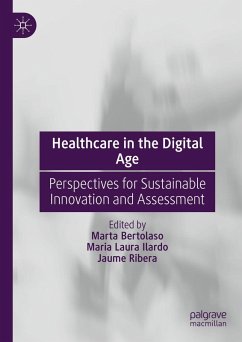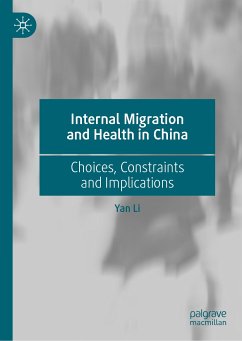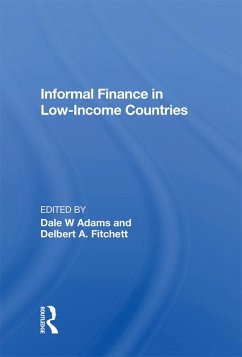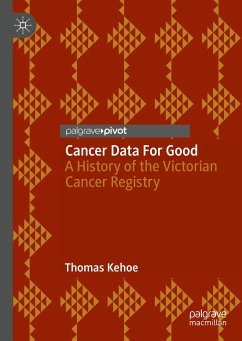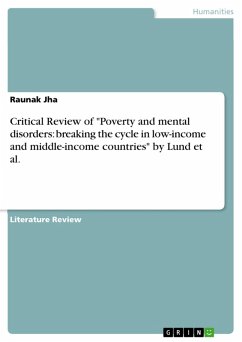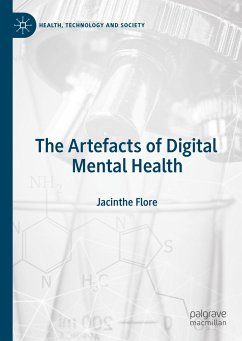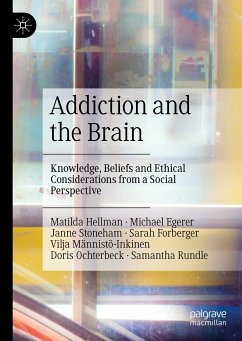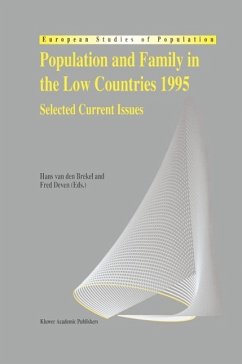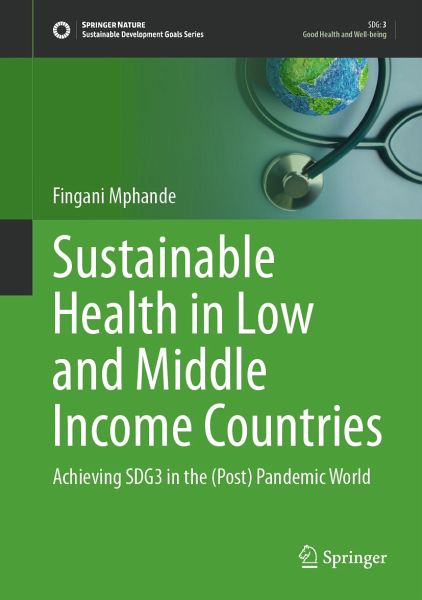
Sustainable Health in Low and Middle Income Countries (eBook, PDF)
Achieving SDG3 in the (Post) Pandemic World
Versandkostenfrei!
Sofort per Download lieferbar
96,95 €
inkl. MwSt.
Weitere Ausgaben:

PAYBACK Punkte
48 °P sammeln!
This book highlights lessons from the COVID-19 pandemic and explains how these can be used to build sustainable health systems, especially in Low- and Middle-Income Countries (LMIC). It investigates the impact of outbreak response and management on health sustainability in LMIC from the perspective of SDG3: "Ensuring healthy lives and wellbeing for all at all ages". Despite strides being made in some areas for SDG target 3.3 to fight communicable diseases, the COVID-19 pandemic has caused interruptions that will considerably affect vaccination coverage as well as the progress that was made, fo...
This book highlights lessons from the COVID-19 pandemic and explains how these can be used to build sustainable health systems, especially in Low- and Middle-Income Countries (LMIC). It investigates the impact of outbreak response and management on health sustainability in LMIC from the perspective of SDG3: "Ensuring healthy lives and wellbeing for all at all ages". Despite strides being made in some areas for SDG target 3.3 to fight communicable diseases, the COVID-19 pandemic has caused interruptions that will considerably affect vaccination coverage as well as the progress that was made, for example: in reducing malaria cases. Vulnerable populations who were already struggling to access their healthcare needs before the pandemic may face even greater challenges at present and in the years to come, post-pandemic. This book considers the progress on attaining the SDG3 targets, specifically: to improve early warning systems for management of national and global health risks, and the effect of pandemics - including but not limited to the COVID-19 pandemic - and emerging disease outbreaks. It explores the weaknesses and strengths in LMIC and how to strengthen capacities in these countries. The author also investigates and proposes approaches that can, or should, be implemented to ensure sustainable health systems in developing countries, including early warning systems, risk reduction, and the management of global and national health risks. This book is of great interest to public health professionals, infectious diseases experts, and epidemiologists, as well as students and researchers of public health systems and healthcare infrastructure in developing countries.
Dieser Download kann aus rechtlichen Gründen nur mit Rechnungsadresse in A, B, BG, CY, CZ, D, DK, EW, E, FIN, F, GR, HR, H, IRL, I, LT, L, LR, M, NL, PL, P, R, S, SLO, SK ausgeliefert werden.



